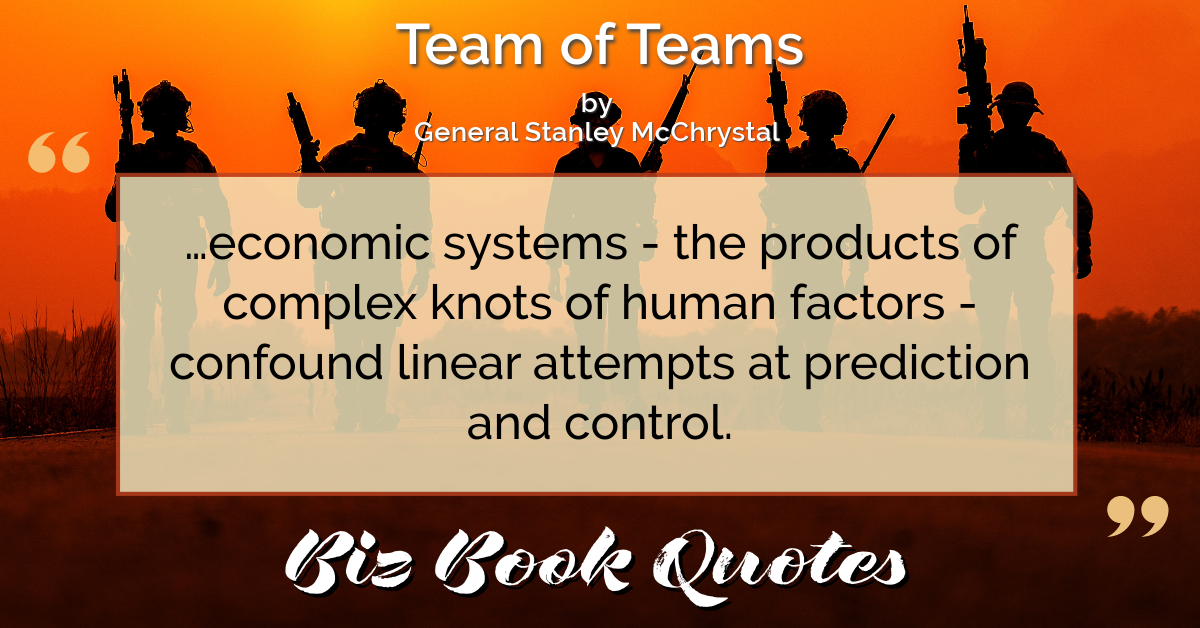 |
…economic systems – the products of complex knots of human factors – confound linear attempts at prediction and control.
|
067 |
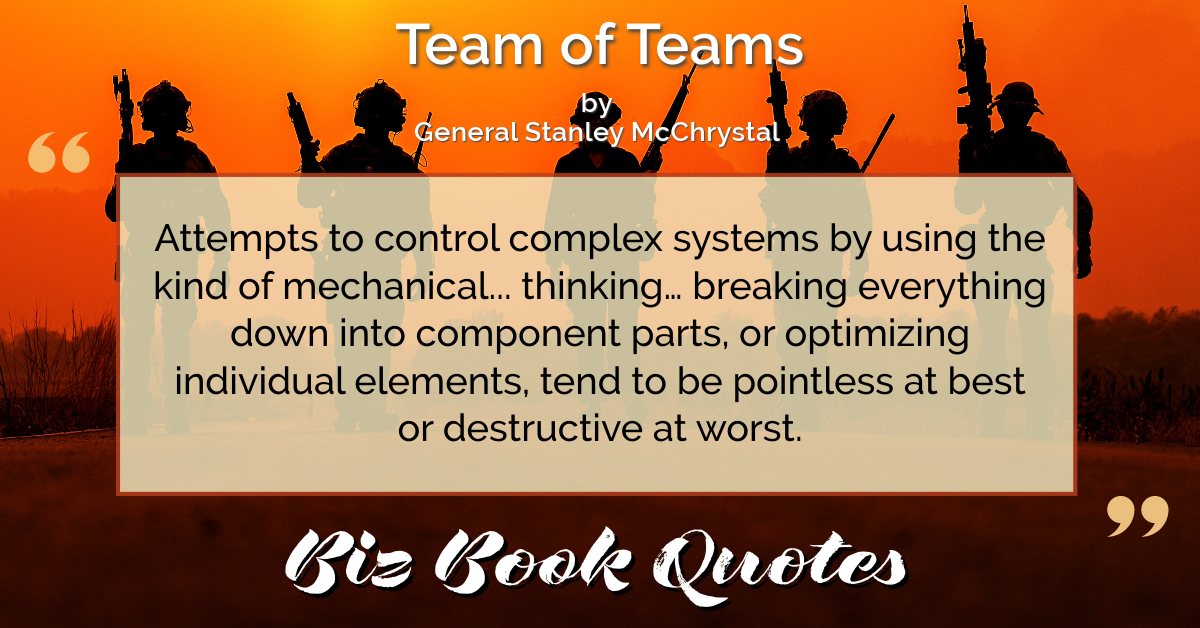 |
Attempts to control complex systems by using the kind of mechanical, predestinationist thinking… breaking everything down into component parts, or optimizing individual elements, tend to be pointless at best or destructive at worst.
|
068 |
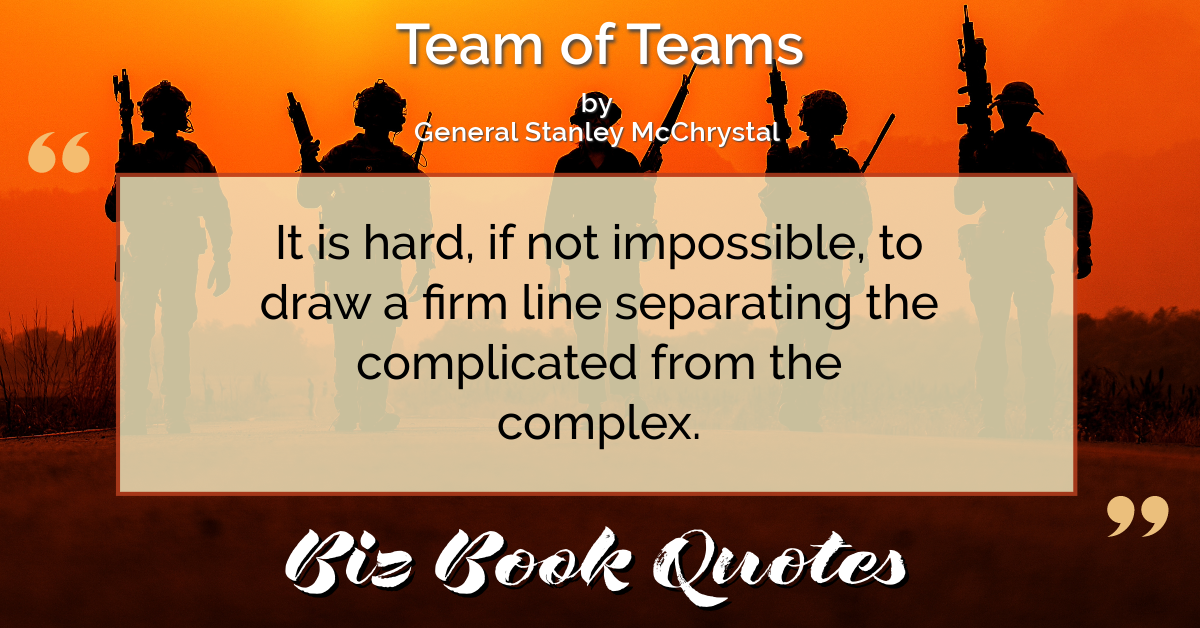 |
It is hard, if not impossible, to draw a firm line separating the complicated from the complex.
|
069 |
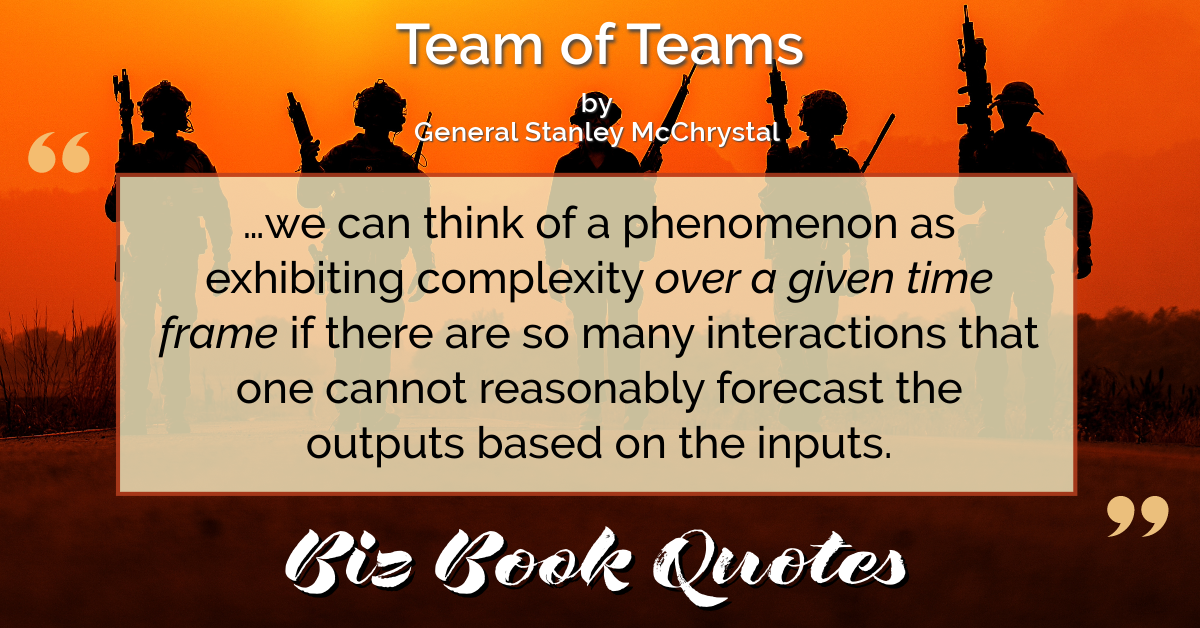 |
…we can think of a phenomenon as exhibiting complexity over a given time frame if there are so many interactions that one cannot reasonably forecast the outputs based on the inputs.
|
070 |
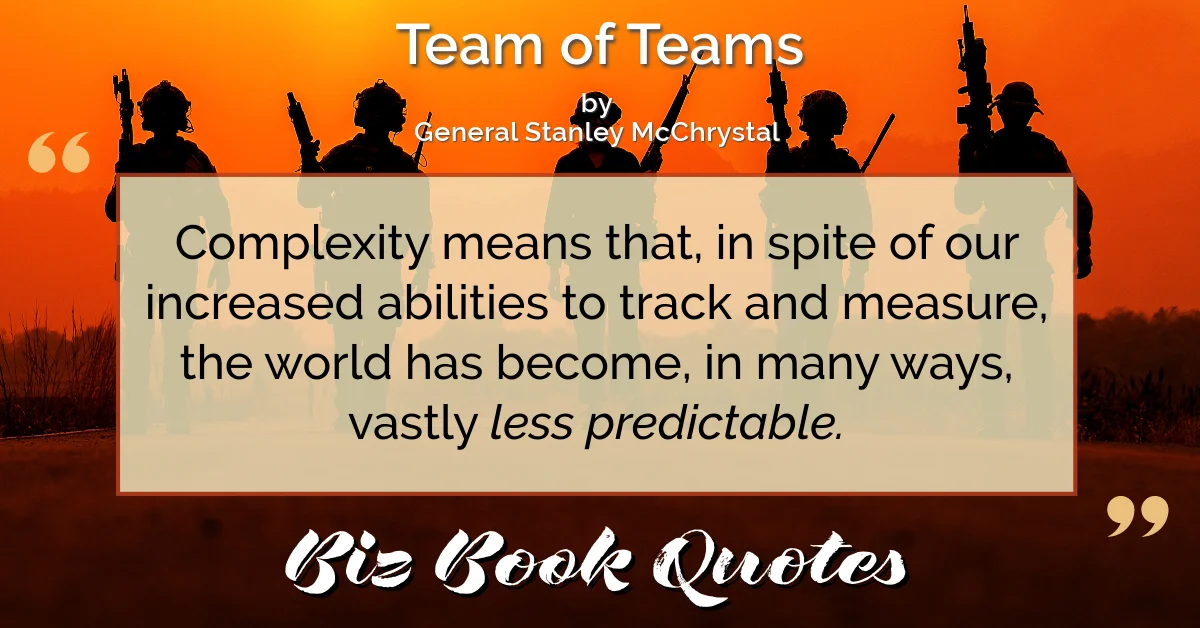 |
Complexity means that, in spite of our increased abilities to track and measure, the world has become, in many ways, vastly less predictable.
|
074 |
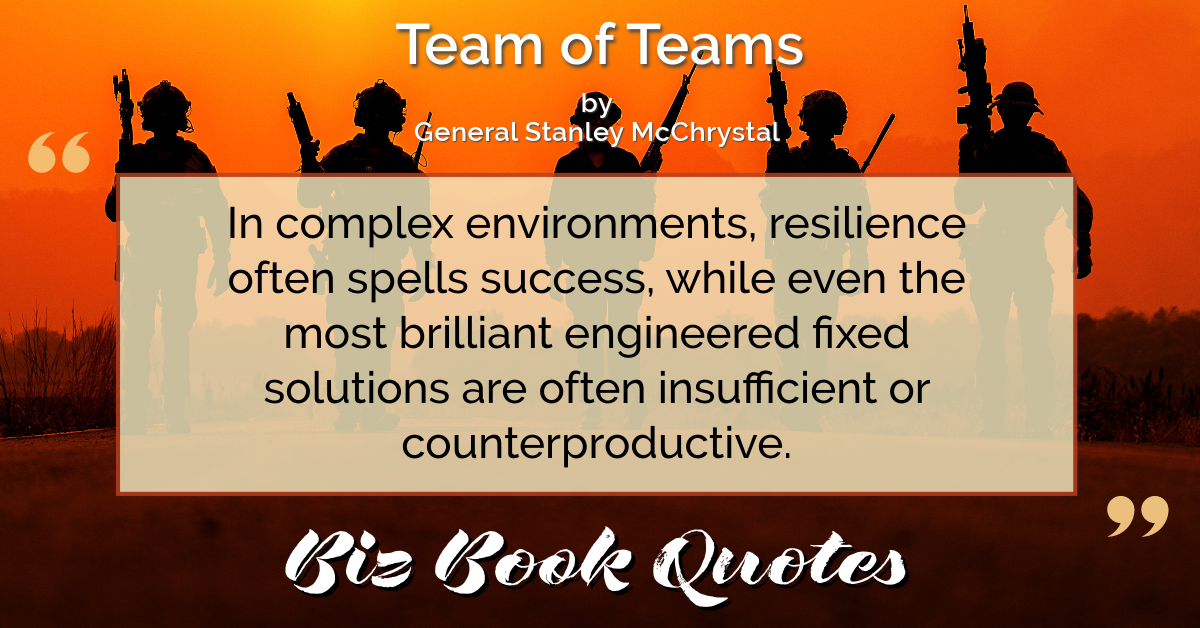 |
In complex environments, resilience often spells success, while even the most brilliant engineered fixed solutions are often insufficient or counterproductive.
|
076 |
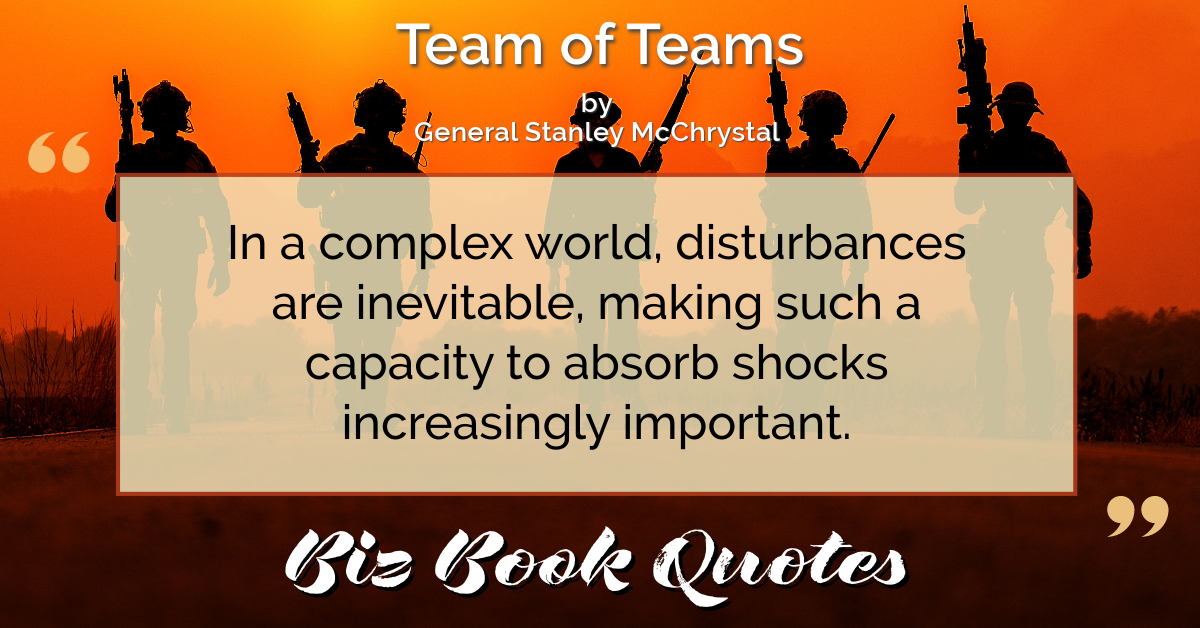 |
In a complex world, disturbances are inevitable, making such a capacity to absorb shocks increasingly important.
|
076 |
 |
…a robust protection against a known threat is not always sufficient; in complex systems, threats can flow from many places.
|
077 |
 |
Team members must all work toward the same goal, and in volatile, complex environments that goal is changeable.
|
098 |
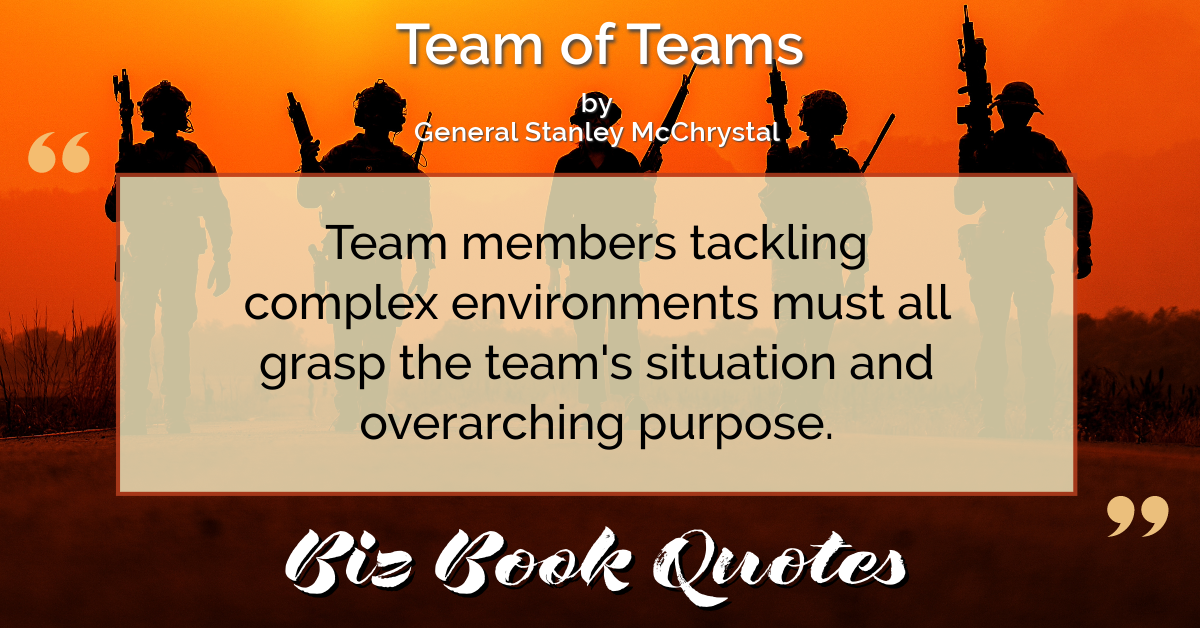 |
Team members tackling complex environments must all grasp the team’s situation and overarching purpose.
|
099 |